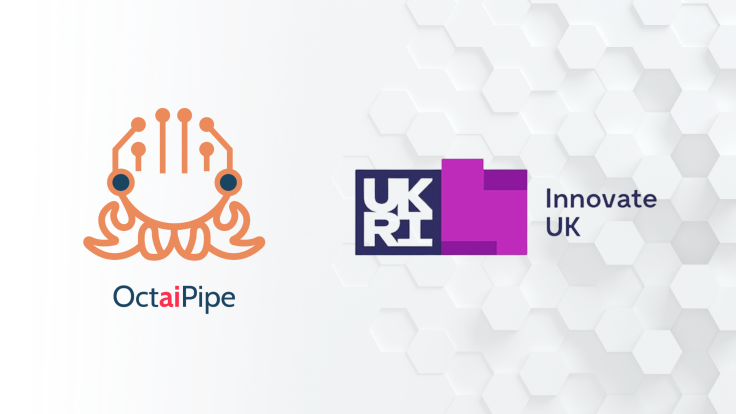AI development receives another £2 million worth of funding
OctaiPipe, Britain's first federated learning platform for IoT, is one of 42 projects to be awarded investment as part of the Bridge AI programme.

In today's economy, there is a focus on taking advantage of the opportunities presented by the development of artificial intelligence (AI), but doing so in risk-managed ways.
Recently the Secretary of State for Science, Innovation and Technology Chloe Smith announced an investment of £54 million into the development of safe and trustworthy AI. The British government have made clear they see developing and taking advantage of AI as important for national competitiveness, but with the stipulation that the risks it brings should be managed in its development.
Accordingly, as part of the £54 million investment, it was announced that £2 million worth of funding would be allocated to 42 projects to conduct "feasibility studies in businesses as part of the BridgeAI programme". Tasked with accelerating "the adoption of trusted and responsible AI and machine learning technologies", these projects will develop tools to assess AI technologies in relation to a multiplicity of factors, including privacy, security, accountability and transparency.
Created by Innovate UK, the mission of the Bridge AI programme is to assist businesses "in high growth potential sectors such as agriculture, construction, creative and transport industries" in harnessing the power of AI. Specifically, it is concerned with funding and supporting innovators in the creation, assessment, and implementation of "trusted AI solutions".
Innovate UK, Britain's national innovation agency backs the innovation of businesses UK-wide across all sectors and technologies. It is one of seven research councils brought together under UK Research and Innovation (UKRI).
The £2 million worth of funding was subject to a competition launched by Innovate UK at the end of last year. This was the first phase of a two-phase competition for UK-registered businesses. One of the successful first-phase applicants for a share of the £2 million investment was OctaiPipe, an edge AI platform that brings together federated learning and distributed MLOps.
Chong Shen Ng, Lead Data Scientist of OctaiPipe, has explained that "trust in AI" is "a crucial element in the increasingly fragmented yet connected world of IoT". Crucially, the new funding is "driving forward with the mission to make OctaiPipe synonymous with trust in AI".
Moreover, OctaiPipe is based on a rethinking of conventional "systems for AI in IoT" (Internet of Things). IoT consists of the use of "physical objects embedded with sensors and actuators that communicate with computing systems via wired or wireless networks". As a result, through the use of intelligent devices, IoT systems can digitally monitor and control the physical world.
As the number of IoT devices and machines increases exponentially (predicted to hit 26 billion globally by 2030), a key area of concern is data privacy. Therefore, according to the creator of OctaiPipe, technology company T-DAB.AI, an "urgent priority" is the creation of "platforms optimised to maximise private and secure machine learning".
George Hancock, the co-founder of OctaiPipe, explained: "It's crucial for us to take action now to build trust and secure data from the Internet of Things and deliver efficient and scalable intelligence that can benefit us all through connected systems." He also highlighted that OctaiPipe is Britain's first federated learning platform for IoT.
So what problems does OctaiPipe solve?
The traditional way of creating intelligent devices entails moving large amounts of data from devices to a central storage location. For example, in the cloud. However, the moving of large volumes of data creates problems. Firstly, the transfer and computing of large volumes of data in the cloud is expensive. Secondly, however, privacy and security risks arise from the transferring of data from devices.
To address these drawbacks, instead of moving data to the model, OctaiPipe moves the models to the data. Key to achieving this is federated learning, a type of machine learning method in which "a group of decentralised edge devices or systems" are used "to train machine learning models without needing to move or store the raw data in a central server".
Moreover, federating learning allows a single device to take advantage of learning from thousands of other devices "without ever moving any data off of them". This makes the centralisation of data unnecessary, reducing the costs and privacy risks of moving large volumes of data.
© Copyright IBTimes 2025. All rights reserved.





















